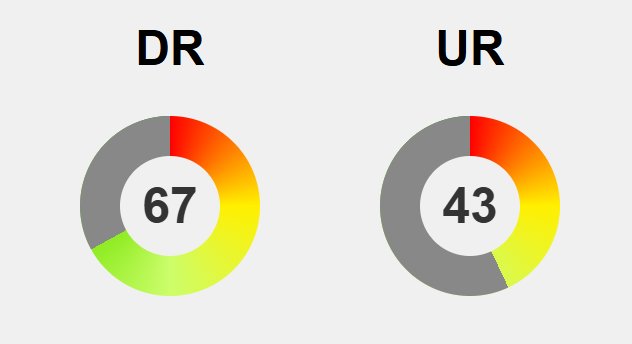Is intelligence truly captured by a single number, or does that narrow view overlook vital traits like resilience, creativity, and emotional depth? While IQ tests have long been used to measure reasoning and problem-solving, they fail to encompass the full spectrum of human potential. Traits such as perseverance, adaptability, and social skills often determine success just as much—if not more—than cognitive ability. Furthermore, cultural biases embedded in these tests can distort our understanding of individual talent, undervaluing qualities vital in real life. This revelation challenges us to rethink what it means to be intelligent, urging a shift toward recognizing diverse strengths that foster innovation, leadership, and resilience. Embracing a broader view not only creates more inclusive opportunities but also empowers individuals to develop their unique abilities, ultimately unlocking a richer, more accurate picture of human potential.
Unveiling the Limits of IQ: What True Potential Really Means
When we think about intelligence, most of us picture IQ scores—those numbers that aim to quantify how smart someone is. These tests have been around for decades, serving as quick tools to compare reasoning, memory, and problem-solving skills across individuals. They’re often used in schools, workplaces, and even clinical settings to get a snapshot of mental ability. But here’s the thing: a single number doesn’t capture everything that makes a person capable or successful. Traits like creativity, emotional resilience, grit, and adaptability play a huge role in how we navigate life, yet they’re rarely reflected in those scores.
IQ tests are designed to compare individuals against large groups, with the average score set at 100. Most people fall between 85 and 115, making the scores seem straightforward. High scores—above 130—are associated with giftedness, while lower scores might indicate some cognitive challenges. But these scores are only part of the story. They measure certain mental abilities—like reasoning and pattern recognition—but overlook qualities that are just as important in real life. Someone might have a high IQ but struggle to bounce back from setbacks or connect with others, which can be just as critical to success.
One major issue with relying solely on IQ is the cultural bias embedded in many tests. Questions often reflect specific backgrounds or experiences, making scores less fair or meaningful for diverse populations. Moreover, these tests ignore motivation, curiosity, resilience, and practical skills, all of which influence how well someone performs in the world. A person with a lower IQ score might be incredibly creative or emotionally intelligent, yet these qualities aren’t captured by standard assessments. Conversely, someone with a high score might lack the emotional resilience needed to handle real-world challenges.
Thinking beyond IQ means recognizing that intelligence isn’t just about cognitive ability. It’s a complex mix of skills and traits that shape our potential to succeed and grow. Emotional resilience helps us recover from failure, while creativity drives innovation. Grit keeps us pushing through obstacles in pursuit of long-term goals. These qualities often determine how effectively we turn our abilities into actual achievement. Focusing only on test scores risks missing the full picture of what someone is truly capable of—potential that’s often hidden, but just as vital.
Beyond the Numbers: Unlocking Traits That Drive Real-World Success
Standardized tests like IQ exams do a decent job at measuring reasoning, memory, and problem-solving, but they fall short when it comes to the qualities that truly matter in everyday life. Traits such as resilience, creativity, and perseverance often have a bigger impact on long-term success than raw intelligence. Someone might excel on an IQ test but struggle to handle setbacks or adapt to new challenges. Conversely, a person with a modest score could shine in navigating obstacles, thanks to emotional strength and a growth mindset.
Resilience, in particular, isn’t something an IQ test can directly assess, yet it’s crucial for overcoming difficulties. It’s the ability to bounce back from failure and keep moving forward. When it comes to innovation and problem-solving, creativity and curiosity often spark breakthroughs more than reasoning skills alone. These qualities fuel outside-the-box thinking and inspire new ideas—traits that standard tests rarely capture.
Grit, or the determination to pursue long-term goals despite setbacks, frequently correlates more strongly with success than intelligence alone. Grit keeps people working late, practicing consistently, and pushing through discouragement. Emotional intelligence and social skills are equally vital, especially in collaborative environments. They influence leadership, communication, and relationship-building—areas where IQ scores offer little insight.
The limitations of traditional IQ tests aren’t just about individual traits; they also stem from cultural and educational biases embedded within the questions. Many items are rooted in specific backgrounds or assumptions, which can unfairly disadvantage those from different cultural or socioeconomic contexts. This bias risks underestimating talents like artistic ability, social insight, or practical skills—abilities essential in many careers and life situations.
Relying solely on these scores narrows our understanding of potential. It overlooks the diverse talents that contribute to success, resilience, and fulfillment. Recognizing this broader range of qualities encourages a more inclusive view of human ability, where different strengths are valued equally. It opens doors for development in areas beyond cognitive reasoning, fostering a richer appreciation of what individuals can achieve.
In workplaces and educational settings, this shift in perspective is already underway. Employers increasingly prioritize traits like emotional intelligence, adaptability, and teamwork. These qualities often predict long-term success better than IQ scores alone. By moving beyond traditional testing, organizations can better identify and nurture talents that drive innovation and cohesion.
Ultimately, expanding our view of intelligence helps us see the full spectrum of human potential. It reminds us that qualities like resilience, creativity, and perseverance are just as vital as cognitive skills. Recognizing and cultivating these traits enables individuals to thrive in a complex, ever-changing world and creates a society that truly values diverse forms of talent and achievement.
The Tug of War: Challenges in Defining and Measuring Human Intelligence
Defining what truly counts as intelligence isn’t straightforward. On one hand, many still see IQ as the gold standard because it offers a seemingly objective way to compare mental abilities. These tests focus on reasoning, memory, and problem-solving—skills that are easy to measure and quantify. But that narrow focus doesn’t come close to capturing the full range of human intelligence, which includes creativity, emotional insight, social skills, and resilience—traits much harder to assess accurately. Trying to condense all of that into a single number feels like fitting a complex puzzle into a tiny box.
This limited perspective creates a fundamental conflict: should we stick with the convenience of standardized tests, or accept a broader, more human view of potential? Standardized assessments are quick, consistent, and easy to administer. Still, they often miss the nuances that make someone truly capable. For instance, someone might score lower on an IQ test but excel at building relationships, adapting to new environments, or thinking outside the box. These qualities are vital in real life but are largely ignored by traditional testing methods.
Cultural bias compounds the problem. Many IQ questions are rooted in specific backgrounds or educational experiences, which can unfairly skew results. A question that makes perfect sense in one context might be confusing or irrelevant in another. This bias risks undervaluing talents like artistic ability, social insight, or practical skills—abilities essential in many careers and daily situations. As a result, we risk forming a distorted picture of a person’s true potential, which can influence opportunities and self-perception over time.
The challenge also lies in societal and professional values. Different cultures and industries prize different qualities—analytical reasoning, resilience, creativity, or emotional intelligence. Relying on a one-size-fits-all measure of intelligence oversimplifies human capability and overlooks these diverse strengths. It can lead us to underestimate talents that don’t fit the traditional mold, narrowing our understanding of what it means to be truly intelligent.
This ongoing debate pushes us to rethink how we define and measure potential. Instead of focusing solely on a single score, we should see intelligence as a multi-dimensional trait—one that combines cognitive skills with emotional and social abilities. Embracing this broader view allows us to value diverse talents and strengths, fostering a more inclusive and accurate understanding of human potential. It’s a shift that challenges us to look beyond numbers and recognize the rich complexity of what people can achieve.
To explore more about the multifaceted nature of intelligence and how it can be assessed beyond traditional tests, you might find this comprehensive overview on human intelligence insightful. Recognizing the various dimensions of intelligence encourages a more inclusive approach to understanding individual talents and potential.
Transforming Life: How a Broader View of Intelligence Shapes Education, Careers, and Personal Growth
Expanding our view of what constitutes intelligence has a profound impact on how we approach education, careers, and personal growth. Instead of emphasizing test scores alone, schools are increasingly encouraging students to develop skills like creativity, emotional resilience, and perseverance. Projects that promote collaboration and problem-solving help nurture qualities essential for navigating a complex world, where adaptability and soft skills are just as important as academic knowledge.
In the workplace, this shift is becoming more evident. Employers now prioritize traits such as emotional intelligence, teamwork, and resilience alongside technical skills. Recognizing these qualities allows organizations to identify talent that can innovate, lead, and adapt—traits often overlooked by traditional assessments. Moving beyond IQ scores helps foster a culture that values growth, flexibility, and genuine contribution, leading to more sustainable success.
On a personal level, understanding that intelligence includes traits like grit and curiosity empowers individuals to focus on developing these qualities. Building resilience through effort transforms setbacks into learning opportunities. Cultivating creativity keeps the mind active and open, while perseverance sustains long-term goals despite obstacles. This mindset shift encourages continuous self-improvement and broadens the definition of achievement beyond raw ability.
Valuing diverse talents creates environments where different strengths flourish. Someone who may not excel academically can shine as a leader, a problem solver, or a compassionate listener. Recognizing these qualities broadens opportunities and helps everyone find their unique path to success and fulfillment. It moves us away from a narrow view that only rewards cognitive skills, opening space for talents that often go unnoticed.
Embracing this expanded perspective prepares us better for the unpredictable challenges of modern life. Traits like resilience and adaptability become vital tools for facing change, setbacks, and uncertainty. Developing these qualities transforms obstacles into opportunities for growth, fostering a mindset that welcomes continuous learning and evolution.
This broader understanding of intelligence also promotes inclusivity. It encourages us to value talents rooted in emotional insight, social skills, and practical wisdom—areas that traditional tests rarely measure. By doing so, we create a more equitable landscape where diverse strengths are recognized and nurtured, helping everyone reach their potential.
In sum, shifting our focus from narrow assessments to a more holistic view of human ability unlocks a wider spectrum of talents. It enables us to cultivate qualities that drive long-term success, resilience, and innovation. This approach not only enriches individual lives but also builds a society better equipped to thrive in an ever-changing world.
Rethinking Intelligence: Embracing the Full Spectrum of Human Potential
Rethinking intelligence means moving beyond the narrow focus on standardized tests and embracing a broader understanding of human potential. For too long, we’ve equated intelligence with a single number—something easy to measure and compare but far from capturing what truly makes someone capable or successful. Traits like resilience, creativity, emotional insight, and grit often matter more in real life, yet they’re rarely reflected in traditional assessments. Recognizing this shifts the conversation from a limited score to a richer appreciation of the qualities that drive achievement and fulfillment.
This expanded perspective reveals that talent isn’t confined to what a test can measure. Someone with an average or below-average IQ might thrive because they possess emotional resilience, curiosity, or persistence—traits that help them adapt, learn, and grow. Conversely, a high IQ doesn’t automatically guarantee success if a person lacks perseverance or emotional intelligence. Seeing these qualities as equally vital allows us to appreciate the full spectrum of human abilities and creates space for different paths to achievement.
Shifting our view of intelligence impacts how we shape education, careers, and personal development. Schools that foster creativity, emotional resilience, and problem-solving prepare students for complex, unpredictable worlds. In workplaces, valuing traits like adaptability and teamwork leads to more innovative, cohesive teams that can thrive amidst change. For individuals, understanding that growth isn’t limited to cognitive ability encourages effort in developing grit, curiosity, and emotional insight—qualities that unlock potential often hidden behind test scores.
Recognizing the full range of human talents promotes inclusivity and equity. It invites us to see value in leadership, empathy, problem-solving, and social skills—areas that traditional metrics tend to overlook. By broadening our definition of intelligence, we open opportunities for everyone to succeed on their own terms, recognizing strengths that might otherwise stay in the shadows. This shift fosters a society that celebrates diverse abilities and encourages lifelong growth.
Moving forward, embracing a more comprehensive view of intelligence prepares us for an unpredictable, rapidly changing world. Traits like resilience, adaptability, and curiosity become essential tools for navigating setbacks and seizing new opportunities. When we focus on cultivating these qualities alongside traditional skills, we empower individuals to thrive through challenges rather than be limited by them. In doing so, we create a future where human potential is truly limitless, driven by a rich array of talents that enrich our lives and society alike.




